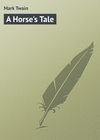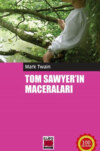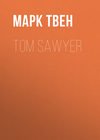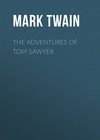Kitabı oku: «Complete Letters of Mark Twain», sayfa 42
Yes, our project is to go home next autumn if we find we can afford to live in New York. We’ve asked a friend to inquire about flats and expenses. But perhaps nothing will come of it. We do afford to live in the finest hotel in Vienna, and have 4 bedrooms, a dining-room, a drawing-room, 3 bath-rooms and 3 Vorzimmers, (and food) but we couldn’t get the half of it in New York for the same money ($600 a month).
Susy hovers about us this holiday week, and the shadows fall all about us of:
“The days when we went gipsying
A long time ago.”
Death is so kind, so benignant, to whom he loves; but he goes by us others and will not look our way. We saw the “Master of Palmyra” last night. How Death, with the gentleness and majesty, made the human grand-folk around him seem little and trivial and silly!
With love from all of us to all of you.
Mark.
XXXVIII. Letters, 1899, To Howells And Others. Vienna. London. A Summer In Sweden
The beginning of 1899 found the Clemens family still in Vienna, occupying handsome apartments at the Hotel Krantz. Their rooms, so often thronged with gay and distinguished people, were sometimes called the “Second Embassy.” Clemens himself was the central figure of these assemblies. Of all the foreign visitors in the Austrian capital he was the most notable. Everywhere he was surrounded by a crowd of listeners – his sayings and opinions were widely quoted.
A project for world disarmament promulgated by the Czar of Russia would naturally interest Mark Twain, and when William T. Stead, of the Review of Reviews, cabled him for an opinion on the matter, he sent at first a brief word and on the same day followed it with more extended comment. The great war which has since devastated the world gives to this incident an added interest.
*****
To Wm. T. Stead, in London:
No. 1.
Vienna, Jan. 9.
Dear Mr. Stead, – The Czar is ready to disarm: I am ready to disarm.
Collect the others, it should not be much of a task now.
Mark Twain.
*****
To Wm. T. Stead, in London:
No. 2.
Dear Mr. Stead, – Peace by compulsion. That seems a better idea than the other. Peace by persuasion has a pleasant sound, but I think we should not be able to work it. We should have to tame the human race first, and history seems to show that that cannot be done. Can’t we reduce the armaments little by little – on a pro rata basis – by concert of the powers? Can’t we get four great powers to agree to reduce their strength 10 per cent a year and thrash the others into doing likewise? For, of course, we cannot expect all of the powers to be in their right minds at one time. It has been tried. We are not going to try to get all of them to go into the scheme peaceably, are we? In that case I must withdraw my influence; because, for business reasons, I must preserve the outward signs of sanity. Four is enough if they can be securely harnessed together. They can compel peace, and peace without compulsion would be against nature and not operative. A sliding scale of reduction of 10 per cent a year has a sort of plausible look, and I am willing to try that if three other powers will join. I feel sure that the armaments are now many times greater than necessary for the requirements of either peace or war. Take wartime for instance. Suppose circumstances made it necessary for us to fight another Waterloo, and that it would do what it did before – settle a large question and bring peace. I will guess that 400,000 men were on hand at Waterloo (I have forgotten the figures). In five hours they disabled 50,000 men. It took them that tedious, long time because the firearms delivered only two or three shots a minute. But we would do the work now as it was done at Omdurman, with shower guns, raining 600 balls a minute. Four men to a gun – is that the number? A hundred and fifty shots a minute per man. Thus a modern soldier is 149 Waterloo soldiers in one. Thus, also, we can now retain one man out of each 150 in service, disband the others, and fight our Waterloos just as effectively as we did eighty-five years ago. We should do the same beneficent job with 2,800 men now that we did with 400,000 then. The allies could take 1,400 of the men, and give Napoleon 1,400 and then whip him.
But instead what do we see? In war-time in Germany, Russia and France, taken together we find about 8 million men equipped for the field. Each man represents 149 Waterloo men, in usefulness and killing capacity. Altogether they constitute about 350 million Waterloo men, and there are not quite that many grown males of the human race now on this planet. Thus we have this insane fact – that whereas those three countries could arm 18,000 men with modern weapons and make them the equals of 3 million men of Napoleon’s day, and accomplish with them all necessary war work, they waste their money and their prosperity creating forces of their populations in piling together 349,982,000 extra Waterloo equivalents which they would have no sort of use for if they would only stop drinking and sit down and cipher a little.
Perpetual peace we cannot have on any terms, I suppose; but I hope we can gradually reduce the war strength of Europe till we get it down to where it ought to be—20,000 men, properly armed. Then we can have all the peace that is worth while, and when we want a war anybody can afford it.
Vienna, January 9.
P. S. – In the article I sent the figures are wrong—“350 million” ought to be 450 million; “349,982,000” ought to be 449,982,000, and the remark about the sum being a little more than the present number of males on the planet – that is wrong, of course; it represents really one and a half the existing males.
Now and then one of Mark Twain’s old comrades still reached out to him across the years. He always welcomed such letters – they came as from a lost land of romance, recalled always with tenderness. He sent light, chaffing replies, but they were never without an undercurrent of affection.
*****
To Major “Jack” Downing, in Middleport, Ohio:
Hotel Krantz, Wein, I, neuer Mart 6,
Feb. 26, 1899.
Dear major, – No: it was to Bixby that I was apprenticed. He was to teach me the river for a certain specified sum. I have forgotten what it was, but I paid it. I steered a trip for Bart Bowen, of Keokuk, on the A. T. Lacy, and I was partner with Will Bowen on the A. B. Chambers (one trip), and with Sam Bowen a whole summer on a small Memphis packet.
The newspaper report you sent me is incorrect. Bixby is not 67: he is 97. I am 63 myself, and I couldn’t talk plain and had just begun to walk when I apprenticed myself to Bixby who was then passing himself off for 57 and successfully too, for he always looked 60 or 70 years younger than he really was. At that time he was piloting the Mississippi on a Potomac commission granted him by George Washington who was a personal friend of his before the Revolution. He has piloted every important river in America, on that commission, he has also used it as a passport in Russia. I have never revealed these facts before. I notice, too, that you are deceiving the people concerning your age. The printed portrait which you have enclosed is not a portrait of you, but a portrait of me when I was 19. I remember very well when it was common for people to mistake Bixby for your grandson. Is it spreading, I wonder – this disposition of pilots to renew their youth by doubtful methods? Beck Jolly and Joe Bryan – they probably go to Sunday school now – but it will not deceive.
Yes, it is as you say. All of the procession but a fraction has passed. It is time for us all to fall in.
Sincerely yours,
S. L. Clemens.
*****
To W. D. Howells, in New York:
Hotel Krantz, Wien I. Neuer Markt 6
April 2, ’99.
Dear Howells, – I am waiting for the April Harper, which is about due now; waiting, and strongly interested. You are old enough to be a weary man, with paling interests, but you do not show it. You do your work in the same old delicate and delicious and forceful and searching and perfect way. I don’t know how you can – but I suspect. I suspect that to you there is still dignity in human life, and that Man is not a joke – a poor joke – the poorest that was ever contrived. Since I wrote my Bible, (last year)42 which Mrs. Clemens loathes, and shudders over, and will not listen to the last half nor allow me to print any part of it, Man is not to me the respect-worthy person he was before; and so I have lost my pride in him, and can’t write gaily nor praisefully about him any more. And I don’t intend to try. I mean to go on writing, for that is my best amusement, but I shan’t print much (for I don’t wish to be scalped, any more than another.)
April 5. The Harper has come. I have been in Leipzig with your party, and then went on to Karlsbad and saw Mrs. Marsh’s encounter with the swine with the toothpick and the other manners.43 At this point Jean carried the magazine away.
Is it imagination, or – Anyway I seem to get furtive and fleeting glimpses which I take to be the weariness and condolence of age; indifference to sights and things once brisk with interest; tasteless stale stuff which used to be champagne; the boredom of travel: the secret sigh behind the public smile, the private What-in-hell-did-I-come-for!
But maybe that is your art. Maybe that is what you intend the reader to detect and think he has made a Columbus-discovery. Then it is well done, perfectly done. I wrote my last travel book44 in hell; but I let on, the best I could, that it was an excursion through heaven. Some day I will read it, and if its lying cheerfulness fools me, then I shall believe it fooled the reader. How I did loathe that journey around the world! – except the sea-part and India.
Evening. My tail hangs low. I thought I was a financier – and I bragged to you. I am not bragging, now. The stock which I sold at such a fine profit early in January, has never ceased to advance, and is now worth $60,000 more than I sold it for. I feel just as if I had been spending $20,000 a month, and I feel reproached for this showy and unbecoming extravagance.
Last week I was going down with the family to Budapest to lecture, and to make a speech at a banquet. Just as I was leaving here I got a telegram from London asking for the speech for a New York paper. I (this is strictly private) sent it. And then I didn’t make that speech, but another of a quite different character – a speech born of something which the introducer said. If that said speech got cabled and printed, you needn’t let on that it was never uttered.
That was a darling night, and those Hungarians were lively people. We were there a week and had a great time. At the banquet I heard their chief orator make a most graceful and easy and beautiful and delicious speech – I never heard one that enchanted me more – although I did not understand a word of it, since it was in Hungarian. But the art of it! – it was superlative.
They are wonderful English scholars, these people; my lecture audience – all Hungarians – understood me perfectly – to judge by the effects. The English clergyman told me that in his congregation are 150 young English women who earn their living teaching their language; and that there are others besides these.
For 60 cents a week the telephone reads the morning news to you at home; gives you the stocks and Mark.ts at noon; gives you lessons in 3 foreign languages during 3 hours; gives you the afternoon telegrams; and at night the concerts and operas. Of course even the clerks and seamstresses and bootblacks and everybody else are subscribers.
(Correction. Mrs. Clemens says it is 60 cents a month.)
I am renewing my youth. I made 4 speeches at one banquet here last Saturday night. And I’ve been to a lot of football matches.
Jean has been in here examining the poll for the Immortals ("Literature,” March 24,) in the hope, I think, that at last she should find me at the top and you in second place; and if that is her ambition she has suffered disappointment for the third time – and will never fare any better, I hope, for you are where you belong, by every right. She wanted to know who it is that does the voting, but I was not able to tell her. Nor when the election will be completed and decided.
Next Morning. I have been reading the morning paper. I do it every morning – well knowing that I shall find in it the usual depravities and basenesses and hypocrisies and cruelties that make up civilization, and cause me to put in the rest of the day pleading for the damnation of the human race. I cannot seem to get my prayers answered, yet I do not despair.
(Escaped from) 5 o’clock tea (’sh!) Oh, the American girl in Europe! Often she is creditable, but sometimes she is just shocking. This one, a minute ago—19, fat-face, raspy voice, pert ways, the self-complacency of God; and with it all a silly laugh (embarrassed) which kept breaking out through her chatter all along, whereas there was no call for it, for she said nothing that was funny. “Spose so many ‘ve told y’ how they ‘njoyed y’r chapt’r on the Germ’ tongue it’s bringin’ coals to Newcastle Kehe! say anything ‘bout it Ke-hehe! Spent m’ vacation ’n Russia, ’n saw Tolstoi; he said—” It made me shudder.
April 12. Jean has been in here with a copy of Literature, complaining that I am again behind you in the election of the 10 consecrated members; and seems troubled about it and not quite able to understand it. But I have explained to her that you are right there on the ground, inside the pool-booth, keeping game – and that that makes a large difference in these things.
13th. I have been to the Knustausstellung with Mrs. Clemens. The office of art seems to be to grovel in the dirt before Emperors and this and that and the other damned breed of priests.
Yrs ever,
Mark.
Howells and Clemens were corresponding regularly again, though not with the frequency of former years. Perhaps neither of them was bubbling over with things to say; perhaps it was becoming yearly less attractive to pick up a pen and write, and then, of course, there was always the discouragement of distance. Once Howells wrote: “I know this will find you in Austria before I can well turn round, but I must make believe you are in Kennebunkport before I can begin it.” And in another letter: “It ought to be as pleasant to sit down and write to you as to sit down and talk to you, but it isn’t….. The only reason why I write is that I want another letter from you, and because I have a whole afternoon for the job. I have the whole of every afternoon, for I cannot work later than lunch. I am fagged by that time, and Sunday is the only day that brings unbearable leisure. I hope you will be in New York another winter; then I shall know what to do with these foretastes of eternity.”
Clemens usually wrote at considerable length, for he had a good deal to report of his life in the Austrian capital, now drawing to a close.
*****
To W. D. Howells, in New York:
May 12, 1899.
Dear Howells, – 7.15 p.m. Tea (for Mr. and Mrs. Tower, who are leaving for Russia) just over; nice people and rather creditable to the human race: Mr. and Mrs. Tower; the new Minister and his wife; the Secretary of Legation; the Naval (and Military) Attach; several English ladies; an Irish lady; a Scotch lady; a particularly nice young Austrian baron who wasn’t invited but came and went supposing it was the usual thing and wondered at the unusually large gathering; two other Austrians and several Americans who were also in his fix; the old Baronin Langeman, the only Austrian invited; the rest were Americans. It made just a comfortable crowd in our parlor, with an overflow into Clara’s through the folding doors. I don’t enjoy teas, and am daily spared them by Mrs. Clemens, but this was a pleasant one. I had only one accident. The old Baronin Langeman is a person I have a strong fondness for, for we violently disagree on some subjects and as violently agree on others – for instance, she is temperance and I am not: she has religious beliefs and feelings and I have none; (she’s a Methodist!) she is a democrat and so am I; she is woman’s rights and so am I; she is laborers’ rights and approves trades unions and strikes, and that is me. And so on. After she was gone an English lady whom I greatly like, began to talk sharply against her for contributing money, time, labor, and public expression of favor to a strike that is on (for an 11-hour day) in the silk factories of Bohemia – and she caught me unprepared and betrayed me into over-warm argument. I am sorry: for she didn’t know anything about the subject, and I did; and one should be gentle with the ignorant, for they are the chosen of God.
(The new Minister is a good man, but out of place. The Sec. of Legation is a good man, but out of place. The Attache is a good man, but out of place. Our government for displacement beats the new White Star ship; and her possible is 17,200 tons.)
May 13, 4 p. m. A beautiful English girl and her handsome English husband came up and spent the evening, and she certainly is a bird. English parents – she was born and reared in Roumania and couldn’t talk English till she was 8 or 10. She came up clothed like the sunset, and was a delight to look at. (Roumanian costume.)…..
Twenty-four young people have gone out to the Semmering to-day (and to-morrow) and Mrs. Clemens and an English lady and old Leschetitzky and his wife have gone to chaperon them. They gave me a chance to go, but there are no snow mountains that I want to look at. Three hours out, three hours back, and sit up all night watching the young people dance; yelling conversationally and being yelled at, conversationally, by new acquaintances, through the deafening music, about how I like Vienna, and if it’s my first visit, and how long we expect to stay, and did I see the foot-washing, and am I writing a book about Vienna, and so on. The terms seemed too severe. Snow mountains are too dear at the price….
For several years I have been intending to stop writing for print as soon as I could afford it. At last I can afford it, and have put the pot-boiler pen away. What I have been wanting is a chance to write a book without reserves – a book which should take account of no one’s feelings, and no one’s prejudices, opinions, beliefs, hopes, illusions, delusions; a book which should say my say, right out of my heart, in the plainest language and without a limitation of any sort. I judged that that would be an unimaginable luxury, heaven on earth.
It is under way, now, and it is a luxury! an intellectual drunk: Twice I didn’t start it right; and got pretty far in, both times, before I found it out. But I am sure it is started right this time. It is in tale-form. I believe I can make it tell what I think of Man, and how he is constructed, and what a shabby poor ridiculous thing he is, and how mistaken he is in his estimate of his character and powers and qualities and his place among the animals.
So far, I think I am succeeding. I let the madam into the secret day before yesterday, and locked the doors and read to her the opening chapters. She said—
“It is perfectly horrible – and perfectly beautiful!”
“Within the due limits of modesty, that is what I think.”
I hope it will take me a year or two to write it, and that it will turn out to be the right vessel to contain all the abuse I am planning to dump into it.
Yours ever,
Mark.
The story mentioned in the foregoing, in which Mark Twain was to give his opinion of man, was The Mysterious Stranger. It was not finished at the time, and its closing chapter was not found until after his death. Six years later (1916) it was published serially in Harper’s Magazine, and in book form.
The end of May found the Clemens party in London, where they were received and entertained with all the hospitality they had known in earlier years. Clemens was too busy for letter-writing, but in the midst of things he took time to report to Howells an amusing incident of one of their entertainments.
*****
To W. D. Howells, in America:
London, July 3, ’99
Dear Howells, – ….. I’ve a lot of things to write you, but it’s no use – I can’t get time for anything these days. I must break off and write a postscript to Canon Wilberforce before I go to bed. This afternoon he left a luncheon-party half an hour ahead of the rest, and carried off my hat (which has Mark Twain in a big hand written in it.) When the rest of us came out there was but one hat that would go on my head – it fitted exactly, too. So wore it away. It had no name in it, but the Canon was the only man who was absent. I wrote him a note at 8 p.m.; saying that for four hours I had not been able to take anything that did not belong to me, nor stretch a fact beyond the frontiers of truth, and my family were getting alarmed. Could he explain my trouble? And now at 8.30 p.m. comes a note from him to say that all the afternoon he has been exhibiting a wonder-compelling mental vivacity and grace of expression, etc., etc., and have I missed a hat? Our letters have crossed.
Yours ever,
Mark.
News came of the death of Robert Ingersoll. Clemens had been always one of his most ardent admirers, and a warm personal friend. To Ingersoll’s niece he sent a word of heartfelt sympathy.
*****
To Miss Eva Farrell, in New York:
30 Wellington court, Albert gate.
Dear miss Farrell, – Except my daughter’s, I have not grieved for any death as I have grieved for his. His was a great and beautiful spirit, he was a man – all man from his crown to his foot soles. My reverence for him was deep and genuine; I prized his affection for me and returned it with usury.
Sincerely Yours,
S. L. Clemens.
Clemens and family decided to spend the summer in Sweden, at Sauna, in order to avail themselves of osteopathic treatment as practised by Heinrick Kellgren. Kellgren’s method, known as the “Swedish movements,” seemed to Mark Twain a wonderful cure for all ailments, and he heralded the discovery far and wide. He wrote to friends far and near advising them to try Kellgren for anything they might happen to have. Whatever its beginning, any letter was likely to close with some mention of the new panacea.
*****
To Rev. J. H. Twichell, traveling in Europe:
Sanna, Sept. 6, ’99.
Dear Joe, – I’ve no business in here – I ought to be outside. I shall never see another sunset to begin with it this side of heaven. Venice? land, what a poor interest that is! This is the place to be. I have seen about 60 sunsets here; and a good 40 of them were clear and away beyond anything I had ever imagined before for dainty and exquisite and marvellous beauty and infinite change and variety. America? Italy? The tropics? They have no notion of what a sunset ought to be. And this one – this unspeakable wonder! It discounts all the rest. It brings the tears, it is so unutterably beautiful.
If I had time, I would say a word about this curative system here. The people actually do several of the great things the Christian Scientists pretend to do. You wish to advise with a physician about it? Certainly. There is no objection. He knows next to something about his own trade, but that will not embarrass him in framing a verdict about this one. I respect your superstitions – we all have them. It would be quite natural for the cautious Chinaman to ask his native priest to instruct him as to the value of the new religious specialty which the Western missionary is trying to put on the Mark.t, before investing in it. (He would get a verdict.)
Love to you all!
Always Yours,
Mark.
Howells wrote that he was going on a reading-tour-dreading it, of course-and asking for any advice that Clemens felt qualified to give. Naturally, Clemens gave him the latest he had in stock, without realizing, perhaps, that he was recommending an individual practice which few would be likely to imitate. Nevertheless, what he says is interesting.
*****
To W. D. Howells, in America:
Sanna, Sweden, Sept. 26, ’99.
Dear Howells, – Get your lecture by heart – it will pay you. I learned a trick in Vienna – by accident – which I wish I had learned years ago. I meant to read from a Tauchnitz, because I knew I hadn’t well memorized the pieces; and I came on with the book and read a few sentences, then remembered that the sketch needed a few words of explanatory introduction; and so, lowering the book and now and then unconsciously using it to gesture with, I talked the introduction, and it happened to carry me into the sketch itself, and then I went on, pretending that I was merely talking extraneous matter and would come to the sketch presently. It was a beautiful success. I knew the substance of the sketch and the telling phrases of it; and so, the throwing of the rest of it into informal talk as I went along limbered it up and gave it the snap and go and freshness of an impromptu. I was to read several pieces, and I played the same game with all of them, and always the audience thought I was being reminded of outside things and throwing them in, and was going to hold up the book and begin on the sketch presently – and so I always got through the sketch before they were entirely sure that it had begun. I did the same thing in Budapest and had the same good time over again. It’s a new dodge, and the best one that was ever invented. Try it. You’ll never lose your audience – not even for a moment. Their attention is fixed, and never wavers. And that is not the case where one reads from book or Ms., or where he stands up without a note and frankly exposes the fact, by his confident manner and smooth phrasing, that he is not improvising, but reciting from memory. And in the heat of telling a thing that is memorised in substance only, one flashes out the happiest suddenly-begotten phrases every now and then! Try it. Such a phrase has a life and sparkle about it that twice as good a one could not exhibit if prepared beforehand, and it “fetches” an audience in such an enthusing and inspiring and uplifting way that that lucky phrase breeds another one, sure.
Your September instalment45 was delicious – every word of it. You haven’t lost any of your splendid art. Callers have arrived.
With love,
Mark.
“Yes,” wrote Howells, “if I were a great histrionic artist like you I would get my poor essays by heart, and recite them, but being what I am I should do the thing so lifelessly that I had better recognise their deadness frankly and read them.”
From Vienna Clemens had contributed to the Cosmopolitan, then owned by John Brisben Walker, his first article on Christian Science. It was a delicious bit of humor and found such enthusiastic appreciation that Walker was moved to send an additional $200 check in payment for it. This brought prompt acknowledgment.
*****
To John Brisben Walker, in Irvington, N. Y.:
London, Oct. 19, ’99
Dear Mr. Walker, – By gracious but you have a talent for making a man feel proud and good! To say a compliment well is a high art – and few possess it. You know how to do it, and when you confirm its sincerity with a handsome cheque the limit is reached and compliment can no higher go. I like to work for you: when you don’t approve an article you say so, recognizing that I am not a child and can stand it; and when you approve an article I don’t have to dicker with you as if I raised peanuts and you kept a stand; I know I shall get every penny the article is worth.
You have given me very great pleasure, and I thank you for it.
Sincerely Yours,
S. L. Clemens.
On the same day he sent word to Howells of the good luck which now seemed to be coming his way. The Joan of Arc introduction was the same that today appears in his collected works under the title of Saint Joan of Arc.
*****
To W. D. Howells, in New York:
London, Oct. 19, ’99.
Dear Howells, – My, it’s a lucky day! – of the sort when it never rains but it pours. I was to write an introduction to a nobler book – the English translation of the Official Record (unabridged) of the Trials and Rehabilitation of Joan of Arc, and make a lot of footnotes. I wrote the introduction in Sweden, and here a few days ago I tore loose from a tale I am writing, and took the Ms book and went at the grind of note-making – a fearful job for a man not used to it. This morning brought a note from my excellent friend Murray, a rich Englishman who edits the translation, saying, “Never mind the notes – we’ll make the translators do them.” That was comfort and joy.
The same mail brought a note from Canon Wilberforce, asking me to talk Joan of Arc in his drawing-room to the Dukes and Earls and M. P.’s – (which would fetch me out of my seclusion and into print, and I couldn’t have that,) and so of course I must run down to the Abbey and explain – and lose an hour. Just then came Murray and said “Leave that to me – I’ll go and do the explaining and put the thing off 3 months; you write a note and tell him I am coming.”
(Which I did, later.) Wilberforce carried off my hat from a lunch party last summer, and in to-day’s note he said he wouldn’t steal my new hat this time. In my note I said I couldn’t make the drawing-room talk, now – Murray would explain; and added a P. S.: “You mustn’t think it is because I am afraid to trust my hat in your reach again, for I assure you upon honor it isn’t. I should bring my old one.”
I had suggested to Murray a fortnight ago, that he get some big guns to write introductory monographs for the book.
Miss X, Joan’s Voices and Prophecies.
The Lord Chief Justice of England, the legal prodigies which she performed before her judges.
Lord Roberts, her military genius.
Kipling, her patriotism.
And so on. When he came this morning he said he had captured Miss X; that Lord Roberts and Kipling were going to take hold and see if they could do monographs worthy of the book. He hadn’t run the others to cover yet, but was on their track. Very good news. It is a grand book, and is entitled to the best efforts of the best people. As for me, I took pains with my Introduction, and I admit that it is no slouch of a performance.
Then I came down to Chatto’s, and found your all too beautiful letter, and was lifted higher than ever. Next came letters from America properly glorifying my Christian Science article in the Cosmopolitan (and one roundly abusing it,) and a letter from John Brisben Walker enclosing $200 additional pay for the article (he had already paid enough, but I didn’t mention that – which wasn’t right of me, for this is the second time he has done such a thing, whereas Gilder has done it only once and no one else ever.) I make no prices with Walker and Gilder – I can trust them.




















